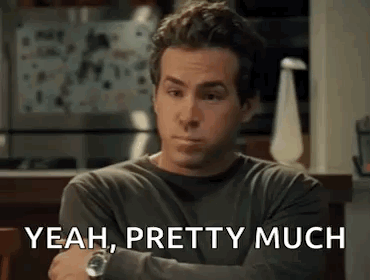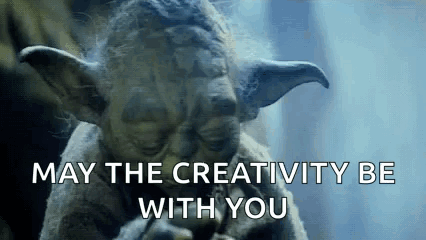Parent the Algorithm
Why digital literacy beats bans, and why connection (not fear) is the future.
Let’s start with the gut punch.
Earlier this week, the New York Times ran a story about a teenager who, in the darkest pit of despair, turned to ChatGPT instead of a hotline or a parent.
They typed their suicidal thoughts into a chatbot because, in that moment, a robot felt safer than another human. The bot responded in a way that didn’t make them feel judged, but at some points, enabled them to take their life.
If that doesn’t smack us across the face with the reality of our digital age, I don’t know what will.
Forget your “AI is taking our jobs” think pieces—this is the moment we realize that the machines aren’t just background noise anymore. They’re co-workers, therapists, babysitters, and apparently, sometimes lifelines.
Now... before you scream Skynet and throw your Alexa into the neighbor’s pool, let’s think about this.
The problem isn’t that our kids might end up asking ChatGPT for life advice. The problem is that we’re not paying tf attention.
Kids aren’t turning to bots because they love them more than us; they’re turning to bots because AI doesn't scroll past their feelings.
And that’s where this whole conversation about social media, parenting, and digital literacy needs to start.

We Are the Algorithm
Here’s what most adults don’t get: the algorithm isn’t some evil Wizard of Oz pulling levers in the background to make your kid obsessed with slime videos and Minecraft mods.
The algorithm is you.
It’s me.
It’s us.
We create the algorithm by what we watch, click, and react to. And if you don’t understand that, it'll play you harder than a boomer on Candy Crush.
I've mentioned this in prior articles before: social learning theory.
Kids learn not from what you say, but from what you do. If they see you scrolling TikTok at the dinner table, don’t be shocked when they want to do the same.
If they watch you treat “likes” like a dopamine slot machine, don’t act surprised when they start chasing the same little digital hearts.
So, the problem isn’t the system. It’s us, and our habits, our blind spots, our inability to put the fucking phone down and play a board game without checking notifications.

Gen Z Says Yes to All
Here’s a stat that should make you spill your cold brew: while 86% of Gen Z sees ChatGPT as a helpful work tool, they’re also more likely than other age groups to describe it as entertainment (36%), a companion (32%), or even a therapist (21%).
Read that bitch again.
A fifth of Gen Z already thinks of AI as their therapist. We can clutch our pearls about it, or we can accept that AI is filling the emotional gaps humans keep ignoring. Because when you’ve got a robot willing to listen at 2 a.m. without judgment, and parents who tell you to “just log off,” who do you think wins?
Parents: You Can’t Scroll While You Preach
This is where we all need a little tough love.
Parents, you can’t be doom-scrolling Twitter threads about “the fall of civilization” while telling your kids that they can’t have social media because it’s “bad.” That’s like smoking a pack of Marlboros while giving a lecture on lung health.
Kids model our behaviors.
If we’re glued to our phones, they’ll want to be glued to theirs. If we treat technology like a necessary evil, they’ll either rebel against it or absorb our anxiety about it. Neither is healthy.
The healthier path? Integrate.
Sit next to your kid and watch their Roblox YouTube videos with them. Play Minecraft together. Laugh at TikToks together. Show them how to filter bullshit from good content. And most importantly, show them that the internet isn’t just a place to consume—it’s a place to connect, create, and contribute.

Connection is the Real Endgame
Here’s where it gets a little spiritual, so bear with me.
The internet isn’t inherently toxic—it’s a mirror. And at its best, it’s a fucking cathedral of connection.
When I meet someone online who shares my sense of stoic humor, my love of writing, or my deep disdain for corporate bullshit jargon, I feel less alone. That’s the point.
That’s the real “evolution.”
Org. psych calls this the belongingness hypothesis: humans have a fundamental need to form and maintain meaningful relationships. That’s why social media blew up in the first place—not because we love ads, but because we love feeling seen.
So, if we want our kids to experience the beauty of the internet, we can’t shield them from it; we have to guide them through it and help them curate their feeds. Teach them how to use their thumbs for good—click “like” on a friend’s art project instead of some influencer’s ad for protein powder. Because those tiny cues matter.
They’re signals: I see you. I support you. I’m here.
Stalkers Don’t Build Communities
If you’re watching your friends’ content but never reacting in front of your kids? You’re basically a ghost at the party. And not the cool “mysterious” kind, more like the weird uncle sitting silently in the corner eating dip with his bare hands.
Social platforms are fueled by engagement. Your clicks, your likes, your comments—they’re not meaningless. They’re lifeblood. And when you only pour that energy into influencers who already have cash and clout, you’re making the rich RICHER and not teaching your kiddos how to support their friends in a human-first way.
So, for the love of God... use your damn thumbs.
Like your cousin’s graduation post. Comment on your friend’s small business launch. Share your coworker’s blog. Because that’s how we make the algorithm work for us instead of the other way around.

🗯️ Shit to Think About
→ When was the last time you engaged online to connect instead of just consume?
→ What behaviors are you modeling for your kids (or hell, your friends) right now?
→ Since you're the algo, what story are you teaching it to tell?